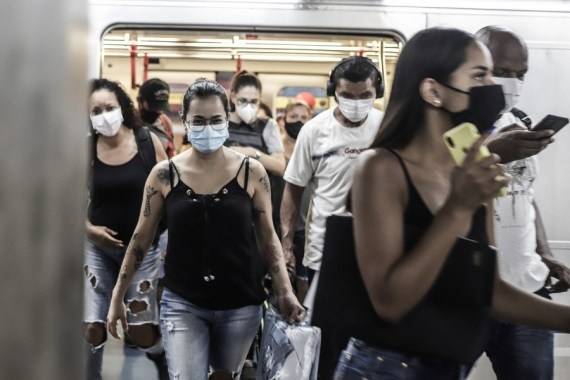Recently, the Spanish government had announced that travellers from Argentina, Colombia, Bolivia and Namibia will have to spend 10 days in quarantine following their arrival in the country…reports Asian Lite News.
The SARS-CoV-2 Delta variant of concern is now the dominant variant in most of Europe, the World Health Organisation (WHO) warned on Monday.
The European Centre for Disease Prevention and Control (ECDC), the WHO said that efforts to prevent transmission of the Delta variant must be reinforced.
The WHO Regional Office for Europe and the European Centre for Disease Prevention and Control (ECDC) shows that between June 28 and July 11 the Delta variant was dominant in the majority (19 countries) of the 28 countries that reported sufficiently complete genetic sequencing information,” says a statement from WHO and ECDC.
“In these 19 countries, the median proportion of all nationally sequenced virus isolates detected that were Delta was 68.3 per cent, overtaking that for the previously dominant Apla variant (22.3 per cent) across the region,” it said.
The Delta variant will be the globally dominant strain over the coming months and has already been identified in almost all European countries. It will continue to spread, displacing circulation of other variants unless a new more competitive virus emerges.
According to the latest statement by ECDC: “The emergence of significantly more transmissible SARS-CoV-2 variants such as the B.1.617.2 (Delta) is causing an upsurge of COVID-19 cases in several EU/EEA countries. This is likely to continue until a larger proportion of the general population is fully vaccinated unless more stringent non-pharmaceutical interventions (NPIs) are implemented. (ANI)
Recently, the Spanish government had announced that travellers from Argentina, Colombia, Bolivia and Namibia will have to spend 10 days in quarantine following their arrival in the country.
The decision was published in the Spanish Official State Bulletin (BOE) on Saturday, which said the measure will come into effect from July 27 as a result of the rising number of Covid-19 cases in the four countries.
The 10-day quarantine may end earlier if the travellers get a negative Covid-19 test result on the seventh day after their arrival.
Argentina, Colombia, Bolivia and Namibia thus join a list of over 25 countries from outside the European Union that are considered to be high risk. Travellers from these countries have to spend time in quarantine after arriving in Spain. The Spanish Health Ministry said last week that the ban on arrivals from Brazil and South Africa, which was imposed earlier in the year, will remain in place until at least August 3.
ALSO READ-EMA says two jabs vital for protection against Delta variant
READ MORE-Delta variant driving 83% of US cases

